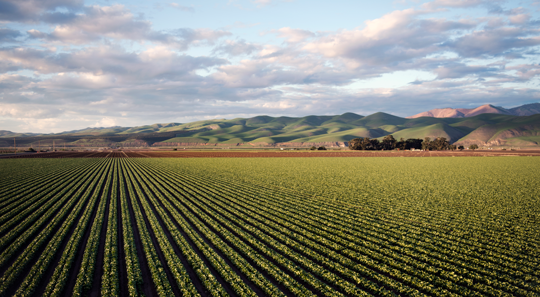
Image: Pixabay
Proposed rules do not address legal or illegal deforestation, nor the opening of the European market by 2050 and disregard the use of biomass for bioeconomy solutions.
Cooperation and dialogue are fundamental instruments so that the effects of the internationalization of the European Green Deal do not impact the competitiveness of Brazilian agribusiness, as the rules were based only on the reality of the European Union, that is, on agriculture in the temperate world. , which is quite different from agriculture in a country with a tropical climate.
{module Form RD}
“The world needs cooperation and not sanctions, even more so in times of food insecurity, armed conflict and significant changes in global trade”, said Luiz Carlos Corrêa Carvalho, president of the Brazilian Agribusiness Association (ABAG), during the Agro Forum : Brasil Protagonista, carried out by the entity, this Tuesday, January 31st, in a hybrid format. “The European Union has an advanced democratic system, but it realized that it alone will not be able to meet its decarbonization goals, which is why it included production chains. However, there is a major distortion of reality between the temperate world and the tropical world, which needs to be discussed. Furthermore, the unilateral rules imposed conflict with the principles of multilateralism”, he added.
Carvalho, moderator of the first panel “What is the Green Deal and what challenges it can bring us”, analyzed that the rules do not address the opening of the European market by 2050 and disregard the use of biomass for bioeconomy solutions. “We realize that the focus is on prevention and protection, even at a time of food instability in the world”, he added. Another point is that the Anti-Deforestation Law does not address the issue of legal or illegal deforestation, treats publicly and privately held companies in the same way, and does not clarify how the issue of sensitive products will be proven. He also said that the United States, which is also developing its green program, sought to discuss these items with other countries through a questionnaire.
On the panel, Ingo Plöger, vice-president and coordinator of the ABAG International Relations Committee, provided a quick history of the creation of the Green Deal and its goals. He assessed that the European Union brought a new international agenda: a climate proposal, but considered that “the biggest mistake was to internationalize concepts that are good for EU countries, but are not necessarily good for the rest of the planet. It's an excellent plan from an internal perspective. They are transparent, citing the risks and measures to reduce them.”
In this sense, Brazil has worked to ensure that the European Union, institutions and producers see that the Brazilian agricultural structure is sustainable. According to Elias Antonio de Luna e Almeida Santos, minister-counselor, head of the Economic and Commercial sector of the Brazilian Mission to the European Union, the country has expressed its concern about the unilateral nature of the measures. He considered that to improve the narrative of Brazilian agriculture it is necessary to show the results of the reduction in deforestation. “Our speech has highlighted the Brazilian reality, in which we share the objectives of sustainable development and environmental preservation. However, the means to achieve these goals do not need to be the same for everyone, due to the particularities of each country and region”.
Sueme Mori, director of International Relations at the Brazilian Agriculture and Livestock Confederation (CNA), recalled at the Agro Forum: Brazil Protagonist that the principle of shared but differentiated responsibilities is important because it shows the differences between countries, which have different legislation. In his view, the European Green Deal could have impacts on Brazil, because if the country is classified as high risk, the importer will change suppliers, as it is he (importer) who bears all the costs. However, after a meeting with representatives of the European Union last week, she commented that there is a window of opportunity for dialogue, so that the national agricultural sector can take its proposals to comply with the established rules.
For Ingo Melchers, director of the Brazil – Germany Agropolitical Dialogue (APD), the decarbonization of the European and global economy is a path of no return and the current major agenda. Therefore, the Green Deal meets not only this objective, but a demand from European society that no longer wants to contribute to deforestation. “This was the reaction of European legislators to society’s demand.” An important issue, in his opinion, is the bioeconomy, as a vector of innovation and development and technological exchange.
Regarding the European voter, Plöger considered the increase in costs with the changes that will be necessary to comply with the Green Deal, which will increase the prices of products that will be paid by European citizens. “The question is whether with all this there will be a significant reduction in deforestation, because 90% of the products exported from Brazil to the European Union are already certified. If this does not happen, citizens will realize that they have paid a high price for an ineffective policy.”
In the second panel “The effects and risks for the Brazilian economy and agribusiness” of the Agro Forum: Brazil Protagonist, Francisco Turra, former Minister of Agriculture and president of the Advisory Council of the Brazilian Animal Protein Association (ABPA), stated that there will be a journey towards dialogue to build new alternatives, since the international discussion is focused on world hunger. “Brazil needs to explain to the world that we know how to produce sustainably. Therefore, transparency is the best strategy”, he explained.
In this area, Túlio Dias, Director of Sustainability at Agropalma, commented on the new georeferencing and geolocation technologies that can act in the fight against illegal deforestation, being an important instrument for Brazilian production chains. “For the Brazilian narrative to be positive and consistent, it needs to be accompanied by clear social and environmental positions, which means that reducing deforestation rates becomes a good communication asset, contributing to improving our position at the negotiating tables”, clarified.
A concern for the palm oil sector and other production chains is that if the European policy is applied, small and medium-sized producers will be the most impacted. “Due to less strategic management capacity, engagement with direct customers, difficulty with language and communication, less investment capacity for adjustments, they will be more exposed to being left out of important production chains”, says Dias.
Rodrigo Lima, managing partner of Agroicone and consultant for the Brazilian Association of Meat Exporting Industries (ABIEC) defended efficient livestock production, which reduces environmental impacts. He cited, for example, the ABC+ Plan's goal of restoring 30 million degraded pastures, as well as integration systems with the iLPF (Crop-Livestock-Forest Integration). “Agriculture that does not recover degraded areas becomes unproductive”, he pointed out. He also emphasized the importance of innovation and technology for the advancement of agribusiness.
Source: datagro












